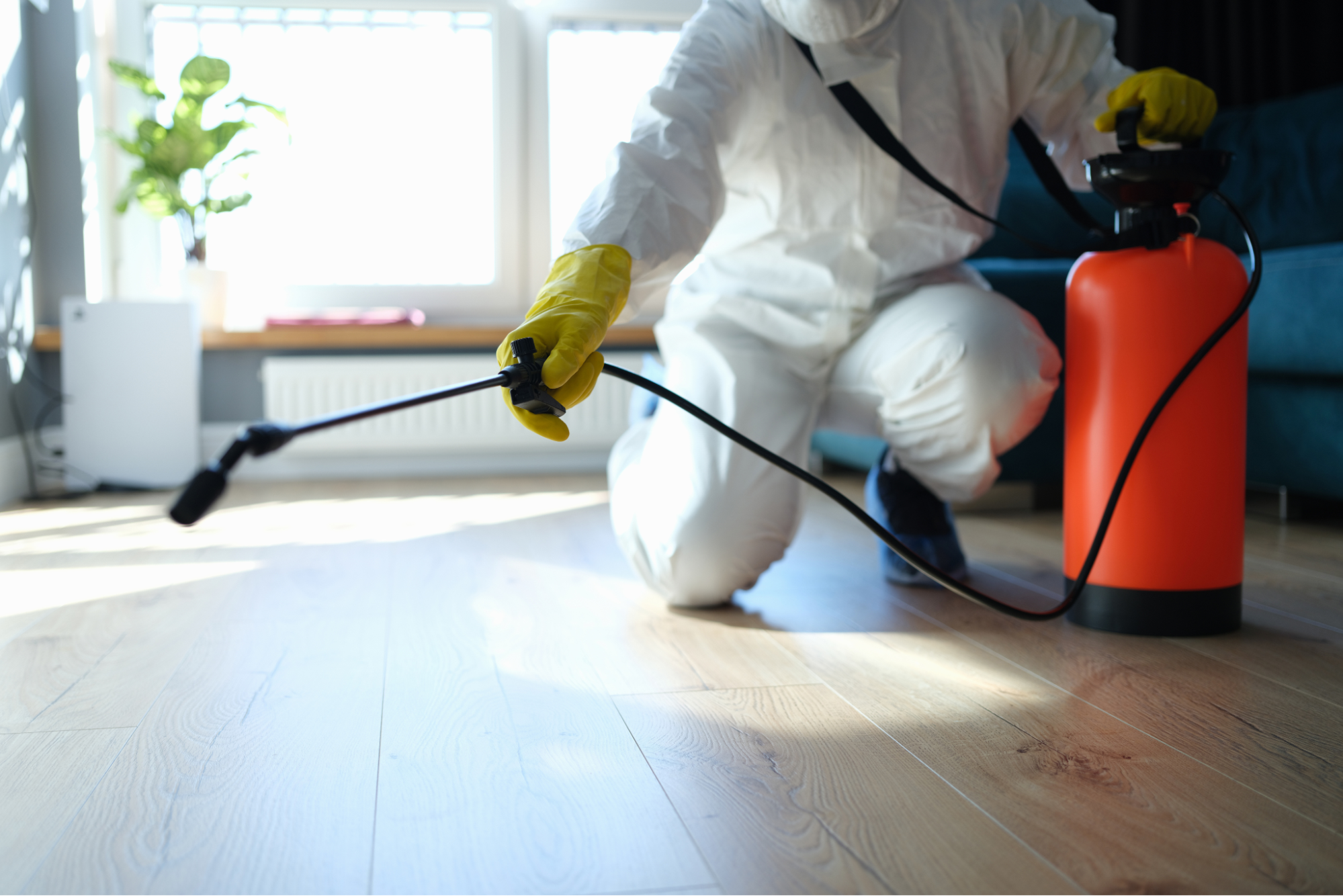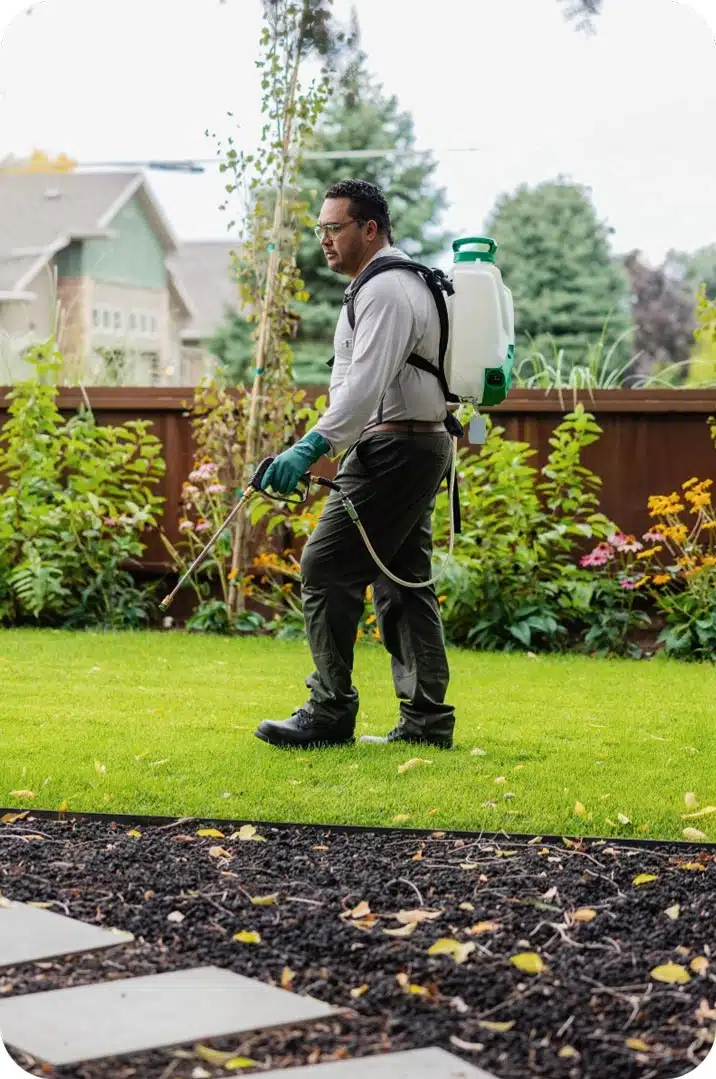A1 Commercial Pest Control Portland - Efficient Bed Bug Solutions for Businesses
A1 Commercial Pest Control Portland - Efficient Bed Bug Solutions for Businesses
Blog Article
Reliable Insect Control Solutions: A Comprehensive Appearance at Elimination Techniques and Avoidance Procedures
In the realm of pest control services, the effective monitoring of infestations needs a meticulous method that incorporates numerous techniques and procedures for both removal and prevention. From Integrated Parasite Management (IPM) methods that prioritize sustainable options to chemical extermination methods designed for targeted elimination, the arsenal versus parasites is diverse and vast.

Integrated Parasite Monitoring (IPM) Methods
Integrated Bug Administration (IPM) Methods incorporate a detailed approach to pest control that concentrates on prevention, control, and monitoring approaches to properly manage parasite populaces. By integrating various techniques, IPM aims to reduce the influence of insects while additionally reducing the reliance on chemical pesticides. Prevention exists at the core of IPM, emphasizing methods like appropriate cleanliness, upkeep of hygiene, and sealing access points to hinder parasites from infesting structures. Surveillance plays a critical role in IPM by frequently inspecting and identifying parasite degrees to establish the suitable intervention thresholds. Control techniques in IPM focus on the use of physical, organic, and cultural methods prior to turning to chemical therapies as a last resource. These approaches consist of presenting natural killers, environment modification, and using capturing gadgets to maintain pest populations in check. Overall, IPM promotes a ecologically conscious and lasting method to pest monitoring, promoting lasting remedies that safeguard both human health and wellness and the ecological community.
Chemical Elimination Strategies
Chemical elimination techniques are frequently used in insect control solutions to successfully eradicate insect populations that present a risk to human wellness and property. These strategies involve the usage of various chemical substances specifically created to target and remove insects such as insects, rats, and various other unwanted animals. The application of chemicals, insecticides, rodenticides, and various other chemical agents is carefully controlled to ensure optimum performance while reducing risks to humans, family pets, and the setting.
One of the key advantages of chemical elimination strategies is their capacity to offer fast and targeted outcomes, making them particularly beneficial in situations of severe invasions or immediate bug control demands - a1 portland bed bug exterminator. Nonetheless, it is important to emphasize the importance of correct handling, application, and disposal of these chemical items to avoid unplanned harm
Moreover, incorporated bug management (IPM) strategies commonly incorporate chemical elimination techniques with various other methods such as sanitation, environment adjustment, and biological controls to create a lasting and detailed bug control method. By incorporating chemical elimination methods deliberately within an IPM structure, insect control services can successfully take care of insect populaces while lessening prospective risks to human health and the environment.
Biological Insect Control Approaches
Utilizing natural predators and bloodsuckers to manage bug populations is a sustainable method recognized as organic parasite control. a1 pest control in portland oregon bed bugs. One usual organic control technique entails introducing all-natural enemies of the target bug species, such as ladybugs for aphid control or nematodes for termite invasions.
An additional effective biological control technique is using microbial pesticides. These are naturally happening microbes, such as fungis, microorganisms, and viruses, that particularly target and contaminate specific bug varieties. By making use of these microbial representatives, parasite populations can be properly reduced without damaging helpful organisms or a1 bed bugs exterminator portland triggering injury to the atmosphere.
Physical Bug Avoidance Steps
Applying physical bug prevention steps involves using obstacles and structural adjustments to deter pests from going into or infesting a building. Mounting door sweeps, displays on windows, and sealing cracks in the structure can assist avoid bugs like insects and rats from gaining accessibility indoors.
Another physical avoidance step is using obstacles like fence to maintain larger insects such as raccoons or deer away from the residential property. Installing mesh or cord displays around gardens can safeguard plants from being damaged by bugs. Proper waste management, including protecting trash bin with tight-fitting lids, is necessary in deterring bugs like rodents, raccoons, and insects. By carrying out these physical bug prevention procedures, homeowner can dramatically lower the threat of parasite invasions and the damage they can create.
Professional Bug Assessment Treatments
Performing complete and organized parasite evaluations is a basic aspect of specialist bug monitoring procedures. Expert parasite inspectors are trained to thoroughly check out homes for indicators of problems, identifying pest types, entry factors, and conducive conditions.

Final Thought
To conclude, efficient insect control solutions employ a range of techniques, including Integrated Parasite Management approaches, chemical elimination methods, organic controls, and physical prevention steps. Expert insect examination treatments play a critical function in recognizing and dealing with pest issues in a prompt fashion. By executing a mix of these approaches, homeowner can efficiently stop and manage insect invasions.
From Integrated Parasite Administration (IPM) strategies that focus on sustainable solutions to chemical elimination methods developed for targeted elimination, the collection versus insects is complex and large.Integrated Bug Monitoring (IPM) Techniques incorporate a detailed method to pest control that focuses on prevention, control, and surveillance methods to effectively take care of insect populaces.Chemical elimination methods are commonly employed in bug control services to successfully eliminate bug populations that posture a threat to human wellness and home.Utilizing all-natural killers and parasites to handle bug populations is a lasting technique recognized as biological insect control.In conclusion, effective insect control solutions employ a selection of strategies, including Integrated Bug Management methods, chemical extermination methods, organic controls, and physical avoidance measures.
Report this page